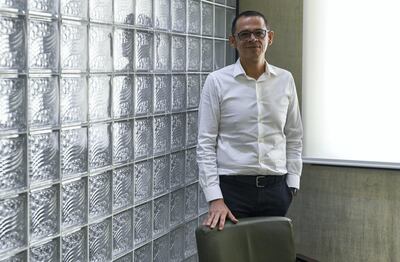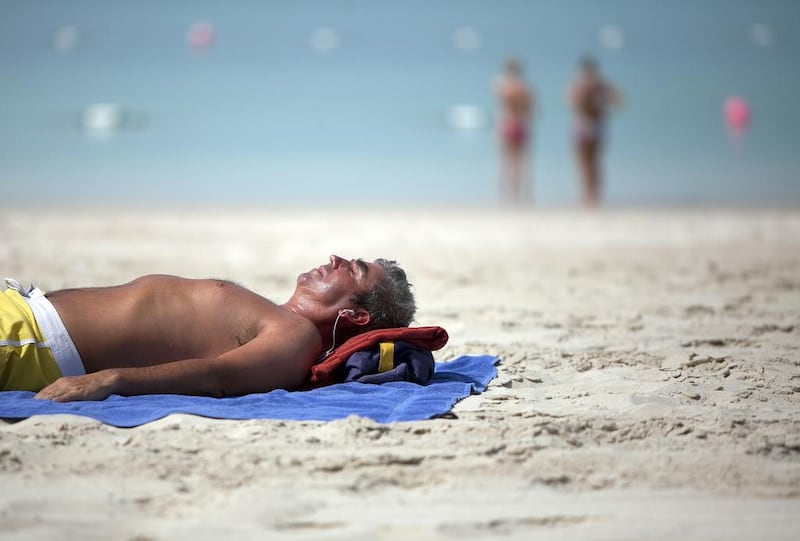Doctors in the UAE have warned residents about the dangers of contracting skin cancer over peak summer months.
Medics highlighted that patients had died or been left severely disfigured after failing to have unusual skin markings looked at by specialists.
They urged all members of the public to ensure they were regularly screened by doctors and always applied sunscreen when outside.
Their call follows alarming new statistics from the UK which showed rates of skin cancer have soared by 45 per cent in just a decade.
Rates of melanoma - the most deadly type of skin cancer - have risen by more than 50 per cent for men and 35 per cent for women since 2004, according to Cancer Research UK.
Currently, between two and three million non-melanoma skin cancers and 132,000 melanoma skin cancers occur globally each year.
"All you need is 15 minutes of sun [to risk developing cancer]," said Dr Abdel Hadi, a consultant dermatologist at Sheikh Khalifa Medical City in Abu Dhabi.
Rates of skin cancer are generally accepted to be lower in the UAE than elsewhere.
One reason is due to the general population's skin colouration, with darker skin less likely to contracting cancer than a lighter tone.
Official statistics suggest skin cancer accounts for about 14.5 per cent of cancer cases among males in the UAE, yet comprehensive figures on the prevalence of the disease in the country are hard to come by.
Additionally, because a large proportion of the expatriate population leave the UAE in their 60s - an age when skin cancer is most common - an accurate assessment of rates is made even harder.
According to the World Health Organisation, cancer rates in the Middle East are expected to double by 2030, while the Department of Health Abu Dhabi has said about 4,500 new cases of cancer are reported each year.
There are varying types of skin cancer, with the most common being basal cell carcinoma. Unlike melanoma, it is rarely fatal but can lead to disfigurement.

Early warning signs include raised, reddish patches of skin or small, pink or red shiny bumps on the skin. Brown, black or even blue areas can also occur.
Doctors in the Emirates said surgery could remove such lesions but the procedure can leave significant holes in the skin if the tumour is left too long.
Dr Zaidoon Abdelhadi, a dermatologist at Sheikh Khalifa Medical City, is the only specialist in Abu Dhabi who performs a type of surgery known as "micographic surgery" to remove cancers.
The operation is able to avoid destroying too much of the surrounding skin tissue.
"I’ve had patients who have lost eyes because they left it for so long and others who have been severely disfigured," he said.
One of his worst cases was a 70-year-old woman who had a tumour on her chin.
“Since she presented late, she had to have half her bottom face and lips removed. She needed massive reconstructive surgery,” he said.
Sun damage is cumulative with every sunburn incident in our lives increasing the risk of skin cancer.
“Exposure to ultraviolet light, which is in sunlight, is the main cause of skin cancer," said Dr Ghada Ashour, specialist dermatologist at Medcare Hospital in Dubai.
"The annual rates of all forms of skin cancer are increasing each year, representing a growing public concern.
"However, early diagnosis greatly improves survival rates. If found early, cases can be removed or treated with minimal implications,” she said.
UAE health authorities have said they aim to reduce cancer related deaths by 18 per cent by 2021.






